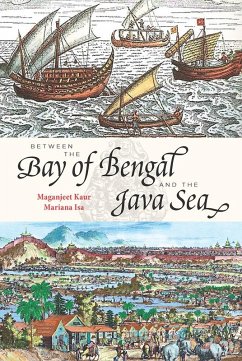The peoples of Southeast Asia have a long history of cultural commonalities. From Sumatra to Vietnam, the inhabitants built wooden houses on poles whether they lived in flooded coastal plains or in the highlands. Their diet consisted mainly of rice and fish. They believed in common folk deities such as the rice-spirit. They chewed betel and engaged in pastimes such as cockfighting and sepak takraw. How did such features come to spread across an area of 4.5 million square kilometres? Southeast Asia-for all its diversity of ethnicity, language, religion-can best be understood as a region that has been knit together by a network of trade routes over land and sea. This revelatory new book traces the diffusion of cultures across Southeast Asia from the last few centuries BCE, by looking at trade goods such as Indian beads. Vietnamese Dongson drums, Chinese ceramics, and spices from the Indonesian archipelago. The authors take us through a host of ancient port cities, such as Srivijaya, whose fortunes were intimately tied to these trade routes, pointing out striking similarities in architecture, writing systems, and everyday customs. Richly illustrated with maps, drawings and full-colour photographs. Between the Bay of Bengal and the Java Sea is an illuminating slice of history that reveals in beautiful detail the longstanding mercantile links and cultural kinship among the disparate peoples of Southeast Asia.
Dieser Download kann aus rechtlichen Gründen nur mit Rechnungsadresse in A, B, BG, CY, CZ, D, DK, EW, E, FIN, F, GR, HR, H, IRL, I, LT, L, LR, M, NL, PL, P, R, S, SLO, SK ausgeliefert werden.









